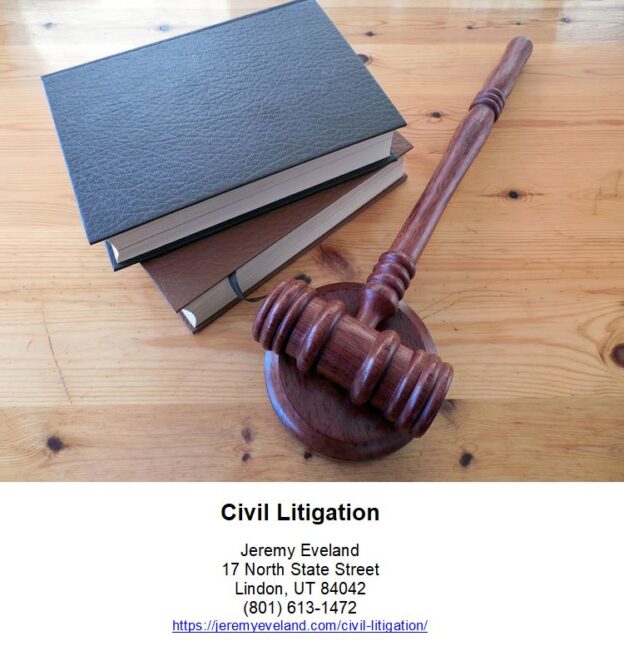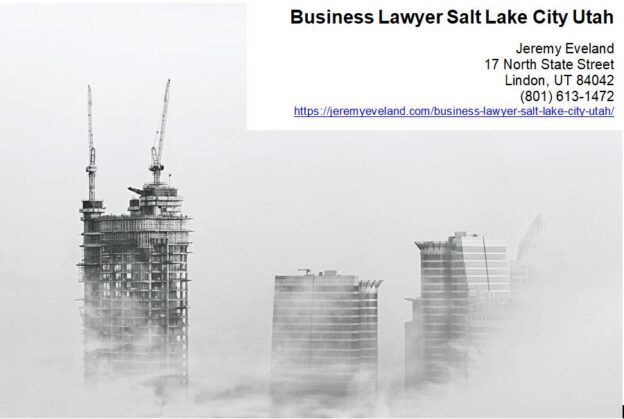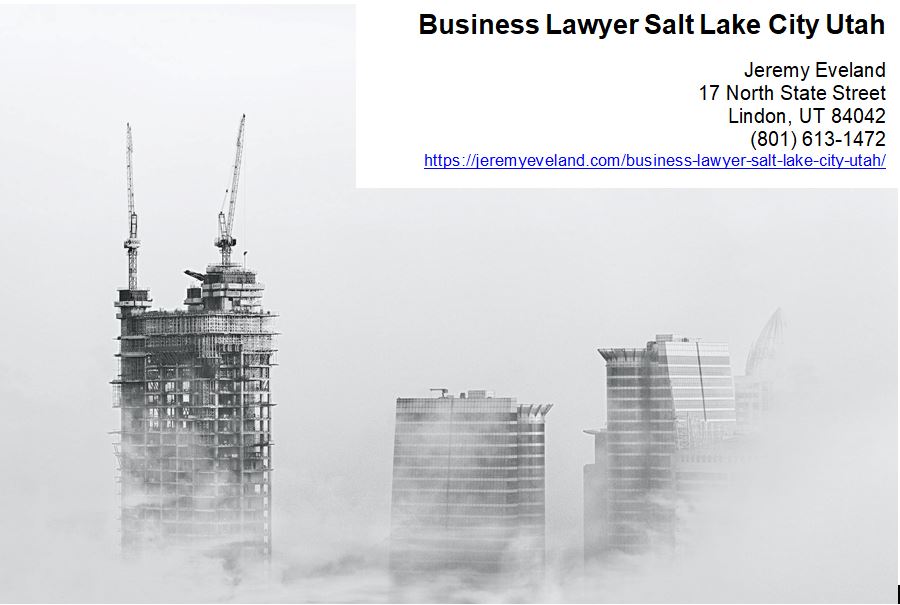-
Utah Lawyer
- Introduction
- Examining the Role of the Executive Branch in the United States Legal System
- Understanding the Sources of Law in the United States Legal System
- Understanding the Difference Between Common Law and Civil Law Systems
- Exploring the Role of the United States Supreme Court in the United States Legal System
- Exploring the Role of the Court of Appeals in the United States Legal System
- Examining the Role of the Federal District Courts in the United States Legal System
- Examining the Role of the Utah Supreme Court in the Utah Legal System
- Exploring the Role of Utah District Courts in the Utah State Legal System
- Examining the Role of Utah Justice Courts in the Utah State Legal System
- Why You Should Hire A Lawyer For Legal Representation in Utah
- Q&A
“Justice for All: The Legal System Working for You”
Introduction
The legal system is a complex and ever-evolving set of rules and regulations that govern the behavior of individuals and organizations. It is the foundation of our society, providing a framework for the resolution of disputes and the enforcement of laws. It is also the basis for the protection of individual rights and liberties. The legal system is composed of a variety of different components, including the courts, the legal profession, and the government. It is important to understand the legal system in order to ensure that justice is served and that the rights of individuals are respected.
Examining the Role of the Executive Branch in the United States Legal System
The executive branch of the United States government plays a critical role in the nation’s legal system. The executive branch is responsible for enforcing the laws of the United States, as well as for ensuring that the laws are applied fairly and consistently. This is accomplished through the various departments and agencies that make up the executive branch, such as the Department of Justice, the Department of Homeland Security, and the Federal Bureau of Investigation.
The executive branch is responsible for the prosecution of criminal cases. The Department of Justice is the primary agency responsible for prosecuting criminal cases in the United States. The Department of Justice is responsible for investigating and prosecuting violations of federal law, as well as for providing legal advice to the President and other executive branch officials. The Department of Justice also works with state and local law enforcement agencies to ensure that criminal laws are enforced.
The executive branch is also responsible for the enforcement of civil laws. The Department of Justice is responsible for enforcing civil laws, such as those related to civil rights, consumer protection, and antitrust. The Department of Justice also works with state and local governments to ensure that civil laws are enforced.
The executive branch is also responsible for the enforcement of immigration laws. The Department of Homeland Security is responsible for enforcing immigration laws, as well as for providing assistance to immigrants who are seeking to become citizens of the United States. The Department of Homeland Security also works with state and local governments to ensure that immigration laws are enforced.
The executive branch is also responsible for the enforcement of environmental laws. The Environmental Protection Agency is responsible for enforcing environmental laws, such as those related to air and water pollution, hazardous waste, and endangered species. The Environmental Protection Agency also works with state and local governments to ensure that environmental laws are enforced.
The executive branch is also responsible for the enforcement of labor laws. The Department of Labor is responsible for enforcing labor laws, such as those related to minimum wage, overtime pay, and workplace safety. The Department of Labor also works with state and local governments to ensure that labor laws are enforced.
The executive branch plays a critical role in the United States legal system. The executive branch is responsible for enforcing the laws of the United States, as well as for ensuring that the laws are applied fairly and consistently. The executive branch is also responsible for providing legal advice to the President and other executive branch officials. The executive branch is also responsible for providing assistance to immigrants who are seeking to become citizens of the United States. Finally, the executive branch is responsible for enforcing environmental, labor, and civil laws.
Understanding the Sources of Law in the United States Legal System
The United States legal system is based on a complex set of laws and regulations that govern the behavior of individuals and organizations. Understanding the sources of law in the United States is essential for anyone who wishes to understand the legal system.
The primary source of law in the United States is the Constitution. The Constitution is the foundation of the legal system and sets out the basic principles and structure of the government. It also outlines the rights and responsibilities of citizens and establishes the three branches of government.
The second source of law in the United States is federal statutes. These are laws passed by Congress and signed into law by the President. Federal statutes are the primary source of law in areas such as civil rights, labor law, and environmental protection.
The third source of law in the United States is administrative regulations. These are rules and regulations created by federal agencies to implement federal statutes. Administrative regulations are binding on all citizens and organizations and must be followed.
The fourth source of law in the United States is case law. This is the body of law created by the decisions of courts in cases that have been decided. Case law is important because it sets precedent for future cases and helps to interpret the meaning of statutes and regulations.
The fifth source of law in the United States is state law. Each state has its own constitution and statutes that govern the behavior of individuals and organizations within the state. State law is important because it can be more specific than federal law and can provide additional protections for citizens.
Finally, the sixth source of law in the United States is international law. This is the body of law created by treaties and agreements between countries. International law is important because it can affect the behavior of individuals and organizations in the United States.
Understanding the sources of law in the United States is essential for anyone who wishes to understand the legal system. By understanding the different sources of law, individuals and organizations can ensure that they are in compliance with the law and can protect their rights.
Understanding the Difference Between Common Law and Civil Law Systems
The legal systems of the world can be divided into two main categories: common law and civil law. Although both systems are based on the same fundamental principles of justice, there are some important differences between them.
Common law systems are based on the principle of stare decisis, which means that the decisions of higher courts are binding on lower courts. This means that the decisions of higher courts are used as precedents in future cases. Common law systems also rely heavily on the use of juries to decide cases.
Civil law systems, on the other hand, are based on a comprehensive set of written laws that are codified and organized into a single body of law. This body of law is known as the Civil Code. In civil law systems, judges are expected to interpret the law in accordance with the Civil Code. Unlike common law systems, civil law systems do not rely on juries to decide cases.
Another important difference between common law and civil law systems is the way in which they handle criminal cases. In common law systems, criminal cases are tried by a jury of peers. In civil law systems, criminal cases are tried by a judge.
Finally, common law systems tend to be more flexible than civil law systems. This is because common law systems rely heavily on the use of precedent, which allows judges to make decisions based on past cases. Civil law systems, on the other hand, are more rigid and rely on the Civil Code for guidance.
Essentially, the common law and civil law systems are both based on the same fundamental principles of justice and fairness. However, there are some important differences between them, including the way in which they handle criminal cases, the use of juries, and the flexibility of the system. Understanding these differences is essential for anyone who wishes to understand the legal systems of the world.
Exploring the Role of the United States Supreme Court in the United States Legal System
The United States Supreme Court is the highest court in the United States legal system. It is the final arbiter of the law and is responsible for interpreting the Constitution and federal laws. The Supreme Court has the power to review and overturn laws passed by Congress and state legislatures, as well as to review and overturn decisions made by lower courts.
The Supreme Court is composed of nine justices, appointed by the President and confirmed by the Senate. The justices serve for life, unless they choose to retire or are impeached. The Supreme Court is the only court in the United States that has the power to declare a law unconstitutional. This power is known as judicial review.
The Supreme Court is responsible for deciding cases that involve constitutional issues, such as civil rights, freedom of speech, and the separation of powers. The Supreme Court also hears cases involving federal laws, such as those related to taxes, bankruptcy, and immigration. The Supreme Court also has the power to review and overturn decisions made by lower courts.
The Supreme Court plays an important role in the United States legal system. It is the final arbiter of the law and is responsible for interpreting the Constitution and federal laws. The Supreme Court has the power to review and overturn laws passed by Congress and state legislatures, as well as to review and overturn decisions made by lower courts. The Supreme Court is the only court in the United States that has the power to declare a law unconstitutional. This power is known as judicial review.
The Supreme Court is an important part of the United States legal system. It is the final arbiter of the law and is responsible for interpreting the Constitution and federal laws. The Supreme Court has the power to review and overturn laws passed by Congress and state legislatures, as well as to review and overturn decisions made by lower courts. The Supreme Court is the only court in the United States that has the power to declare a law unconstitutional. This power is known as judicial review. The Supreme Court plays an important role in protecting the rights of citizens and ensuring that the laws of the United States are followed.
Exploring the Role of the Court of Appeals in the United States Legal System
The United States legal system is a complex and intricate network of laws and regulations that govern the nation. Within this system, the court of appeals plays a critical role in ensuring that justice is served. The court of appeals is the highest court in the federal court system, and it is responsible for reviewing decisions made by lower courts. This review process helps to ensure that the law is applied correctly and that justice is served.
The court of appeals is made up of thirteen circuits, each of which covers a different region of the United States. Each circuit is made up of several judges, who are appointed by the President and confirmed by the Senate. The court of appeals hears appeals from the district courts, which are the trial courts of the federal system. The court of appeals reviews the decisions of the district courts to ensure that the law was applied correctly and that justice was served.
The court of appeals is also responsible for deciding whether or not a case should be heard by the Supreme Court. The Supreme Court is the highest court in the United States, and it is responsible for making decisions that affect the entire nation. The court of appeals can decide to hear a case itself, or it can refer the case to the Supreme Court. This process helps to ensure that the Supreme Court only hears cases that are of national importance.
The court of appeals also plays an important role in interpreting the law. When a case is appealed to the court of appeals, the judges must interpret the law in order to make a decision. This interpretation of the law helps to ensure that the law is applied correctly and that justice is served.
The court of appeals is an essential part of the United States legal system. It helps to ensure that justice is served by reviewing decisions made by lower courts and by interpreting the law. The court of appeals also helps to ensure that the Supreme Court only hears cases of national importance. By playing these important roles, the court of appeals helps to ensure that justice is served in the United States.
Examining the Role of the Federal District Courts in the United States Legal System
The federal district courts are the trial courts of the United States federal court system. They are the first level of the federal court system and are the courts of general jurisdiction. The federal district courts have the power to hear both civil and criminal cases arising under federal law.
The federal district courts are the only courts in the federal court system that can hear cases involving federal law. This means that they are the only courts that can hear cases involving federal statutes, treaties, and the Constitution. The federal district courts also have the power to hear cases involving diversity jurisdiction, which is when the parties in a case are from different states.
The federal district courts are also responsible for issuing injunctions, which are court orders that require a person or entity to do or not do something. Injunctions are often used to prevent a person or entity from engaging in certain activities or to prevent them from taking certain actions.
The federal district courts also have the power to issue writs of habeas corpus, which are court orders that require a person to be brought before a court to determine whether they are being held in custody unlawfully.
The federal district courts also have the power to issue search warrants, which are court orders that allow law enforcement officers to search a person’s home or property for evidence of a crime.
The federal district courts also have the power to issue subpoenas, which are court orders that require a person to appear in court to testify or to produce documents or other evidence.
The federal district courts are an important part of the United States legal system. They are the first level of the federal court system and are the courts of general jurisdiction. They have the power to hear both civil and criminal cases arising under federal law, as well as cases involving diversity jurisdiction. They also have the power to issue injunctions, writs of habeas corpus, search warrants, and subpoenas. The federal district courts play an important role in ensuring that justice is served in the United States.
Examining the Role of the Utah Supreme Court in the Utah Legal System
The Utah Supreme Court is the highest court in the state of Utah and plays a critical role in the Utah legal system. The court is responsible for interpreting the state’s laws and deciding cases that involve constitutional issues. The court is composed of five justices who are appointed by the governor and confirmed by the state senate.
The Utah Supreme Court is the court of last resort in the state. This means that it is the court of final appeal for all cases that have been decided in the lower courts. The court hears appeals from the Utah Court of Appeals and from the district courts. It also has original jurisdiction over certain types of cases, such as those involving the constitutionality of a law or the validity of a state election.
The court is responsible for interpreting the state’s laws and deciding cases that involve constitutional issues. The court is also responsible for setting legal precedent in the state. This means that the court’s decisions become the basis for how similar cases are decided in the future.
The Utah Supreme court does not have the power to issue advisory opinions. The Court only has the power to decide an actual case or controversy before it.
The Utah Supreme Court is an important part of the Utah legal system. It is responsible for interpreting the state’s laws and deciding cases that involve constitutional issues. It also sets legal precedent and issues advisory opinions. By doing so, the court helps to ensure that justice is served in the state of Utah.
Exploring the Role of Utah District Courts in the Utah State Legal System
The Utah District Courts are an integral part of the Utah State legal system. These courts are the trial courts of general jurisdiction in the state, and they are responsible for hearing a wide variety of civil and criminal cases. The District Courts are the only courts in the state that can hear felony criminal cases, and they also handle a variety of civil matters, including family law, probate, and juvenile cases.
The District Courts are organized into eight judicial districts, each of which is served by one or more judges. The judges are appointed by the governor and confirmed by the Utah Senate. The District Courts are also responsible for appointing magistrates to assist the judges in hearing cases.
The District Courts are the first level of appeal for cases that originate in the Justice Courts. The District Courts are courts of original jurisdiction and will hear most cases. When you appeal from District Court, your case goes to either the Utah Court of Appeals or the Utah Supreme Court depending on the case and the rules. The District Courts are also responsible for issuing writs of habeas corpus, which are used to challenge the legality of a person’s detention.
The District Courts are also responsible for issuing orders of protection, which are used to protect victims of domestic violence. The District Courts also handle a variety of other matters, including adoption, guardianship, and mental health proceedings. District Court judges issue search warrants and conduct bail hearings.
The District Courts are an important part of the Utah State legal system. They are responsible for hearing a wide variety of cases and issuing orders that have a significant impact on the lives of Utah citizens. The District Courts are an essential part of the state’s judicial system, and they play a vital role in ensuring justice is served.
Examining the Role of Utah Justice Courts in the Utah State Legal System
Utah justice courts are an important part of the Utah state legal system. These courts are responsible for handling a variety of civil and criminal cases, including traffic violations, small claims, landlord-tenant disputes, and misdemeanors. They are also responsible for issuing search warrants, setting bail, and conducting preliminary hearings.
Justice courts are presided over by justices of the peace, who are elected to four-year terms. These justices are responsible for ensuring that all proceedings are conducted in accordance with the law. They have the authority to issue orders, judgments, and sentences, as well as to impose fines and other penalties.
Justice courts are the first level of the Utah state court system. They are the courts for traffic tickets, class B or class C misdemeanor crimes and small claims matters. That is all. Justice courts are not courts of original jurisdiction (those are of the District Courts). If a case is appealed from Justice Court, it is sent to the district court de novo.
Justice courts are primarily responsible for handling small claims cases. These cases involve disputes between two parties that involve a claim of less than $11,000. The justice court will hear both sides of the case and make a decision. If either party is dissatisfied with the decision, they can appeal to the district court.
Justice courts also cannot handle landlord-tenant disputes. Only the District Courts can do landlord-tenant disputes. These disputes involve issues such as rent payments, repairs, and evictions. The justice court will hear both sides of the case and make a decision. If either party is dissatisfied with the decision, they can appeal to the district court.
Finally, justice courts can’t issue a search warrant. Only the District Courts can issue search warrants. These warrants allow law enforcement officers to search a person’s home or business for evidence of a crime. The justice court must determine that there is probable cause to believe that a crime has been committed before issuing a search warrant.
In essence, Utah justice courts are an important part of the Utah state legal system as outlined above.
Why You Should Hire A Lawyer For Legal Representation in Utah
If you are facing a legal issue in Utah, it is important to consider hiring a lawyer for legal representation. A lawyer can provide invaluable assistance in navigating the complexities of the legal system and can help ensure that your rights are protected. Here are some of the reasons why you should hire a lawyer for legal representation in Utah.
First, a lawyer can provide you with expert advice and guidance. Lawyers are highly trained professionals who understand the intricacies of the law and can provide you with the best advice for your particular situation. They can help you understand the legal process and the potential outcomes of your case, as well as provide you with strategies for achieving the best possible outcome.
Second, a lawyer can represent you in court. If you are facing a legal issue, it is important to have an experienced attorney on your side. A lawyer can help you present your case in the most effective way possible and can ensure that your rights are protected throughout the process.
Third, a lawyer can help you negotiate a settlement. If you are facing a legal dispute, a lawyer can help you negotiate a settlement that is in your best interests. They can help you understand the legal implications of any agreement and can ensure that you are not taken advantage of.
Finally, a lawyer can provide you with peace of mind. Knowing that you have an experienced professional on your side can provide you with the confidence that your rights are being protected and that you are receiving the best possible legal representation.
Hiring a lawyer for legal representation in Utah is an important decision. A lawyer can provide you with expert advice and guidance, represent you in court, help you negotiate a settlement, and provide you with peace of mind. If you are facing a legal issue in Utah, it is important to consider hiring a lawyer for legal representation.
Q&A
Q1: What is the legal system?
A1: The legal system is a system of laws, rules, and regulations that are enforced through social institutions to govern behavior. It shapes politics, economics, and society in numerous ways and serves as a social mediator of relations between people.
Q2: What are the main components of the legal system?
A2: The main components of the legal system include the courts, the legislature, the executive branch, and the legal profession. Lawyers are considered officers of the court.
Q3: What is the purpose of the legal system?
A3: The purpose of the legal system is to provide a framework for resolving disputes, protecting rights and liberties, and promoting justice.
Q4: What is the difference between civil law and criminal law?
A4: Civil law deals with disputes between individuals or organizations, while criminal law deals with behavior that is considered to be a crime.
Q5: What is the difference between common law and statutory law?
A5: Common law is based on judicial decisions and precedents, while statutory law is based on legislation passed by the legislature.
Q6: What is the difference between civil procedure and criminal procedure?
A6: Civil procedure deals with the rules and procedures for resolving civil disputes, while criminal procedure deals with the rules and procedures for prosecuting criminal offenses.
Q7: What is the difference between civil law and equity?
A7: Civil law deals with disputes between individuals or organizations, while equity deals with disputes between individuals or organizations that cannot be resolved through the application of existing laws.
Q8: What is the difference between a trial court and an appellate court?
A8: A trial court is a court that hears cases and makes decisions, while an appellate court reviews decisions made by trial courts and can reverse or modify them.
Q9: What is the difference between a jury trial and a bench trial?
A9: A jury trial is a trial in which a jury of citizens decides the outcome of the case, while a bench trial is a trial in which a judge decides the outcome of the case.
Q10: What is the difference between a civil case and a criminal case?
A10: A civil case is a dispute between two or more parties in which one party is seeking monetary damages or other relief, while a criminal case is a dispute between the state and an individual in which the state is seeking to punish the individual for a crime.
Legal System Consultation
When you need help with the Legal System call Jeremy D. Eveland, MBA, JD (801) 613-1472 for a consultation.
Jeremy Eveland
17 North State Street
Lindon UT 84042
(801) 613-1472
Related Posts
Estate Planning Lawyer West Valley City Utah
Business Contract Lawyer Spanish Fork
Corporate Attorney Riverton Utah
Advantages of Hiring a Utah Personal Injury Lawyer
Estate Planning Lawyer Provo Utah























